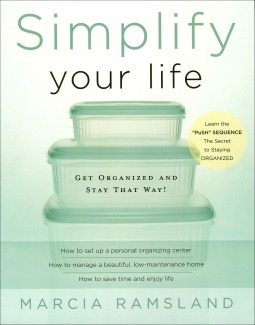Who Me? Delegate? Too Scary!
I've learned so much from Kathy Collard Miller. Her perspective is both biblical and practical. In this Relationships UPGRADE, she asks us to consider whether we delegate easily or not—and if not, why not? 
"For some of us, delegating brings feelings of a loss of control and our reputation being at risk," Kathy says. "Yet, Jesus delegated. Why can’t we?"
I (Dawn) used to be terrible at delegating, and for a prideful reason. I simply thought I could handle things better than others. Did I ever have a lot to learn!
But there are other reasons people don't delegate.
Kathy continues . . .
There have been many times when delegating responsibility would have relieved me of stress and even grown my trust in God, but I resisted. Over years, I’ve learned that when God directs me to delegate and I obey, I’m actually being more like Jesus.
Let’s look first at what causes our fear of delegating.
1. My reputation will be damaged.
Delegating can seem dangerous, because I think the person I put in charge is a reflection of me. If I chose her and she dropped the ball, won’t that say something about me?
About my worth and value?
About my wisdom?
It doesn’t have to.
My reputation is protected by God. If someone makes a wrong conclusion about me, God can make sure her ideas are corrected with the truth.
And even if my “delegate” does something wrong, I didn’t force her to make that choice. She isn’t a reflection of me.
2. Someone may not perform as perfectly as I would.
This fear points to my perfectionistic expectations.
I’m expecting someone else to be perfect when I’m not perfect!
I should focus on God’s view of my worth and value in Christ (Ephesians 1:3-23), not the actions of another.
Proverbs 19:19 tells us,
“A man of great wrath will pay the penalty, for if you deliver him, you will only have to do it again.”
If our assigned person reacted in an inappropriate way, our job is to come alongside and inspire, but not rescue from the consequences because we are afraid.
We also shouldn’t tell ourselves, “I’m never going to delegate again.”
3. God will be displeased.
Actually, God is more interested in our challenges giving us opportunities for growing closer to Him.
If I’m afraid to delegate because I think a less-than-perfect outcome will displease Him, my view of Him is a surprised God who is clueless and unprepared.
Of course, we must follow His guidance in who we choose, but nothing that occurs is a shock to Him. He already knows how He will fulfill His will.
God is not wringing His hands.
Maybe He even wanted things to be different than we planned, because He knows the needs of the people who are impacted.
Some of those ideas seem totally different than our usual assumptions. Yet, consider instead these actions and reactions of Jesus so that we can be set free to risk delegating.
How Jesus Modeled Delegating
1. Instead of requiring perfection, Jesus wanted Martha to stop serving and learn from him instead.
He was aware and concerned about her distress (Luke 10:38-42). He could have created instantly a seven course meal for everyone. Instead He urged her to put aside her unrealistic expectations.
After all, she most likely had servants and could have delegated what needed to be done.
2. Jesus was never concerned about his reputation.
He “lowered Himself” to interact with the “least of these.”
It didn’t matter what other people said or thought about Him. His confidence was in who His Father said He was, not the comments of others.
Over and over again, He gave assignments to His disciples and was never upset with the conclusions of others about successes or failures.
3. Jesus rejoiced not so much in the result but in the heart.
At one point, he sent out 72 followers to tell others about Him.
When they returned, thrilled with the results, Jesus said to them,
“I saw Satan fall like lightning from heaven. Behold, I have given you authority to tread on serpents and scorpions, and over all the power of the enemy, and nothing shall hurt you. Nevertheless, do not rejoice in this, that the spirits are subject to you, but rejoice that your names are written in heaven” (Luke 10:18-20 ESV).
Even though He acknowledged the damage to Satan’s kingdom, Jesus urged them to not put their joy on the results, but on their future eternal life.
Their hearts—their spirituality—were more important than what they accomplished.
4. Jesus allowed for someone to fail in order to grow.
When we don’t want to delegate, sometimes it’s because we don’t want someone to struggle.
Yet, Jesus knew Peter would deny Him and He didn’t prevent it. He knew Peter would become more powerful in the Kingdom in the future through his repentance after the failure.
It really is possible to have confidence in allowing God to work through others!
The next time God leads you to delegate, what truths will help you obey?
Kathy Collard Miller loves to help women trust God more through her 58 books and speaking in 35  states and 9 foreign countries. Her website/blog is www.KathyCollardMiller.com.
states and 9 foreign countries. Her website/blog is www.KathyCollardMiller.com.  Kathy’s newest book, co-written with her husband, Larry, is God’s Intriguing Questions: 60 New Testament Devotions Revealing Jesus’s Nature. Check out Kathy’s Amazon author page at: https://www.amazon.com/Kathy-Collard-Miller/e/B001KMI10S/.
Kathy’s newest book, co-written with her husband, Larry, is God’s Intriguing Questions: 60 New Testament Devotions Revealing Jesus’s Nature. Check out Kathy’s Amazon author page at: https://www.amazon.com/Kathy-Collard-Miller/e/B001KMI10S/.
Graphic adapted, courtesy of Gerd Altmann at Pixabay.
 1 Comment → Posted on
1 Comment → Posted on  Thursday, November 19, 2020 at 10:00AM
Thursday, November 19, 2020 at 10:00AM 











